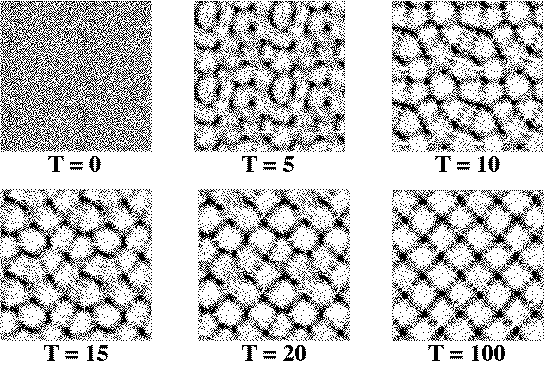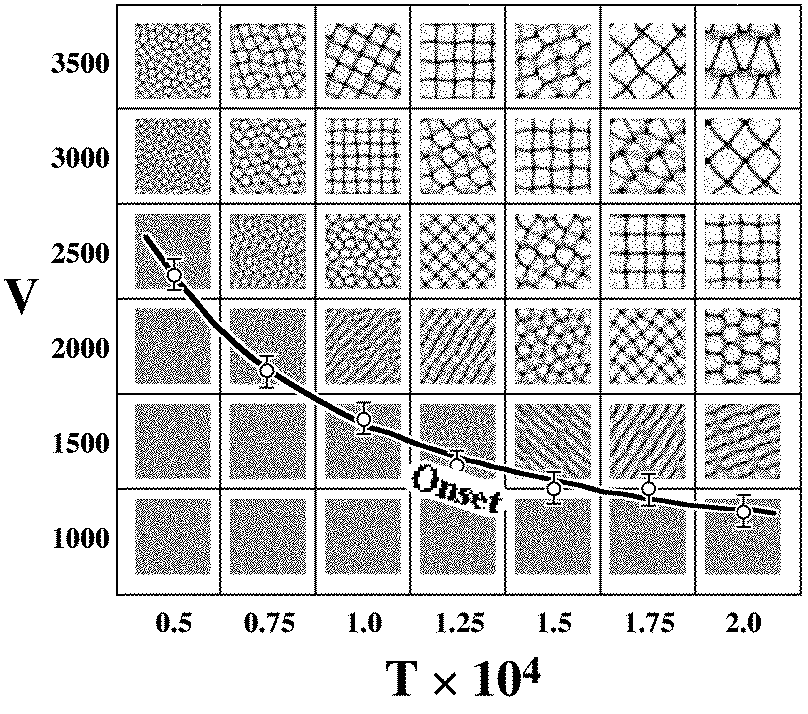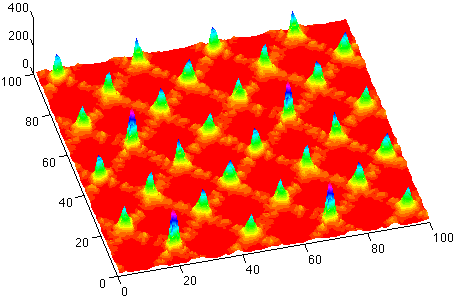- see Nature 574 (1997) pp. 574-6; (available online to subscribers) also review on pp. 541-2 by P. Umbanhowar
These are computational results for patterns from a simulation meant to mimic a shallow shaken granular layer (see also Chicago granular page and Austin granular page). All figures are 2D projections from simulations using 32767 particles.
Things to note:
![]() Many patterns are possible, for example:
Many patterns are possible, for example:
![]() These patterns can be quite large scale (cell diameter >> particle
diameter), while still
These patterns can be quite large scale (cell diameter >> particle
diameter), while still
possessing smaller scale structure.
![]() The onset of these patterns starting from random initial conditions is
fairly rapid. For
The onset of these patterns starting from random initial conditions is
fairly rapid. For
example, plotted below is the progression over time from
a random initial state.

![]() The onset characteristics of the various patterns are not well understood.
Below are onset
The onset characteristics of the various patterns are not well understood.
Below are onset
data determined using auto-correlation analysis. Various
different patterns are plotted
as functions of V, which determines the strength of shaking
of the simulated granular
bed, and T, the period between successive shakes.

![]() The patterns shown above are 2D projections; if one looks instead at densities
of particles,
The patterns shown above are 2D projections; if one looks instead at densities
of particles,
one can find very large concentrations (as high as 300
particles deep) near the vertices of the
patterns. Below is a plot of density versus position
(one particle diameter occupies one unit
on the horizontal scales).
